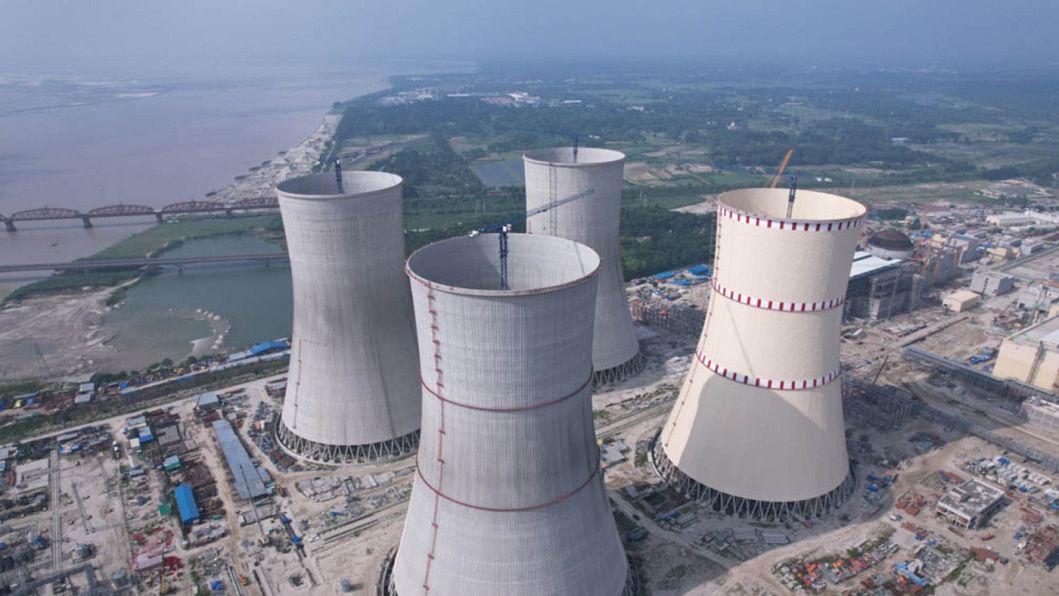Power division gets 30% lower budget allocation

The allocation for the power division in the national budget for fiscal year 2025-26 is around 30 percent less than that of the previous fiscal year, while it has been nearly doubled for the energy and mineral resources division.
The government has decided to cut electricity production costs by approximately 10 percent in a bid to ease the burden of subsidies in the power sector, said Finance Adviser Dr Salehuddin Ahmed in his budget speech on Tuesday.
"If the plan can be implemented, it is estimated that electricity subsidy of more than Tk 11,000 crore will be saved. We are reviewing the power purchase agreements and have taken the initiative to conduct energy audits to reduce the cost," he said.
The FY26 budget allocated Tk 37,000 crore in subsidies for the power sector, whereas it was Tk 40,000 crore last fiscal year before rising to Tk 62,000 crore in the revised budget, as the interim government paid most of the arrears.
The finance adviser said initiatives have been taken to increase oil and gas exploration to ensure energy security through domestic efforts.
At the same time, steps are being taken to develop cost-effective and sustainable infrastructure to help control energy prices.
He added that the government has decided in principle not to increase power tariffs at the moment, considering the prevailing high inflationary pressure.
The power division got Tk 20,342 crore in the new budget, down from Tk 29,177 crore last fiscal year. However, in the revised budget, the allocation was reduced to Tk 21,651 crore, according to budget documents.
The interim government did not initiate any new power plants, but allocated most of the funds to strengthening the grid network and distribution lines across six divisions.
This focus on power transmission is also aimed at starting commercial operation of the first unit of the 1,200MW Rooppur Nuclear Power Plant in December this year.
Among the companies under the power sector, Power Grid Bangladesh PLC received the highest allocation of Tk 8,122 crore, followed by Bangladesh Rural Electrification Board (BREB), which received Tk 2,744 crore.
Under the BREB, a project to modernise distribution systems in Dhaka and Mymensingh divisions received Tk 1,460 crore. An unreconstructed gas pipeline for a gas-fired power plant from Dhanua to Mymensingh was allocated Tk 101 crore.
Ongoing projects including a 1,200MW Matarbari coal-based power plant, 800MW gas-fired Rupsha plant, and 150MW HSD-based Syedpur power plant have received allocations.
A 100MW solar power plant in Madarganj, Jamalpur received Tk 673 crore. Along with this, other solar plants with a combined capacity of 210MW have received allocations under the Rural Power Company Limited and B-R Powergen Ltd.
"One of our major focuses is to increase the share of renewable energy-based electricity generation," said the finance adviser in the budget speech.
Around 3,400MW of electricity will be added to the national grid from clean sources by 2028, including that from the Rooppur plant, he added.
The government is updating Renewable Energy Policy 2008 to make it more relevant to current times, and the revision is now in its final stage, he said.
Meanwhile, the energy and mineral resources division received an allocation of Tk 2,178 crore in the new budget, up from Tk 1,086 crore in the previous budget. It was revised to Tk 1,053 crore in FY25.
The government plans to drill at least 17 gas wells—both exploratory and for further development—through Petrobangla in the upcoming fiscal year.
In addition, Bangladesh Petroleum Exploration and Production Company Limited (Bapex) will conduct a 90-line kilometre geological survey and a 700km 2D and a 450km 3D seismic survey during the period.
Under Petrobangla, a total of seven exploration wells and 13 development wells were drilled over the past three years, according to the budget documents. The target for the ongoing fiscal year was 13 wells, of which only five were completed.
The government also plans to import 6.5 million tonnes of liquefied natural gas (LNG) to meet rising demand, up from 5 million tonnes in the current fiscal.
To reduce power generation costs, the government has exempted value added tax (VAT) on LNG imports and reduced the tax deduction at source during electricity purchase payments to 4 percent from 6 percent, said the finance adviser.
"To keep petroleum product prices stable, we are proposing to reduce the duty rates on the import of both crude and refined fuel, and to withdraw the tariff value on these products," he said.
The finance adviser also said initiatives have been taken to enhance the country's lone fuel refinery by establishing a second unit of Eastern Refinery Limited, which will have a capacity of 3 million metric tonnes.
A study conducted last December by the Institute for Energy Economics and Financial Analysis (IEEFA) proposed a 10 percent reduction in power generation costs to save around Tk 13,800 crore annually by addressing core inefficiencies.
Shafiqul Alam, IEEFA's lead energy analyst for Bangladesh, said it was encouraging to see the government enhance its focus on the energy sector. "But the sector has huge system losses, which should be cut down to zero," he said.
He said the government's shift towards renewable energy remains slow, pointing out that high VAT and other taxes on solar panels have not yet been reduced. "We expected that the high VAT-taxes would be reduced to increase renewable energy usage," he said.

 For all latest news, follow The Daily Star's Google News channel.
For all latest news, follow The Daily Star's Google News channel. 



Comments